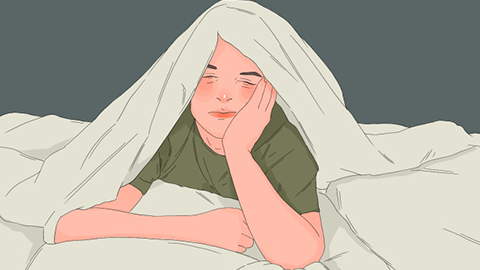What are the symptoms of myocardial ischemia during sleep at night?
Myocardial ischemia refers to a pathological condition characterized by reduced blood perfusion to the heart, leading to insufficient oxygen supply to the myocardium, commonly seen in coronary artery atherosclerotic heart disease. Generally, symptoms that patients may experience during sleep include chest tightness or pain, awakening due to breathlessness at night, difficulty breathing, palpitations, and restless sleep. Detailed analysis is as follows:

1. Chest tightness or pain: Patients may experience chest discomfort or pain during sleep, often located behind the sternum or in the precordial area. The pain may feel like pressure or constriction, frequently accompanied by sensations of oppression or suffocation. This discomfort may occur during deep sleep, forcing the patient to wake up, and symptoms may be relieved by changing position or sitting up.
2. Awakening due to breathlessness at night: Some patients may suddenly wake up during sleep with a feeling of chest tightness and difficulty breathing, needing to sit up immediately or open a window for fresh air to relieve symptoms. This occurs because the volume of blood returning to the heart increases during sleep, increasing the cardiac workload, thereby worsening myocardial ischemia.
3. Difficulty breathing: Patients may feel shortness of breath during sleep,表现为 shallow and labored breathing. Even without physical exertion, patients may feel oxygen deficiency and frequently adjust their posture by turning in bed to improve respiration. This dyspnea may be more pronounced when lying flat and may be slightly relieved when lying on one's side.
4. Palpitations: Myocardial ischemia may affect the normal rhythm of the heart. Patients may experience palpitations at night, sensing a rapid heartbeat, irregular rhythm, or forceful heartbeats. Patients may distinctly feel their heart beating, and this discomfort can disturb sleep, leading to difficulties falling asleep or interrupted sleep.
5. Restless sleep: Due to symptoms such as chest discomfort and difficulty breathing, the quality of sleep at night may decrease,表现为 difficulty falling asleep, frequent dreams, easy awakening, and trouble returning to sleep after waking. Total sleep duration is reduced, and patients may feel tired and fatigued the next day.
If the above symptoms are noticed in daily life, timely medical evaluation should be sought, and appropriate measures should be taken promptly after a clear diagnosis to maintain heart health and improve quality of life.







